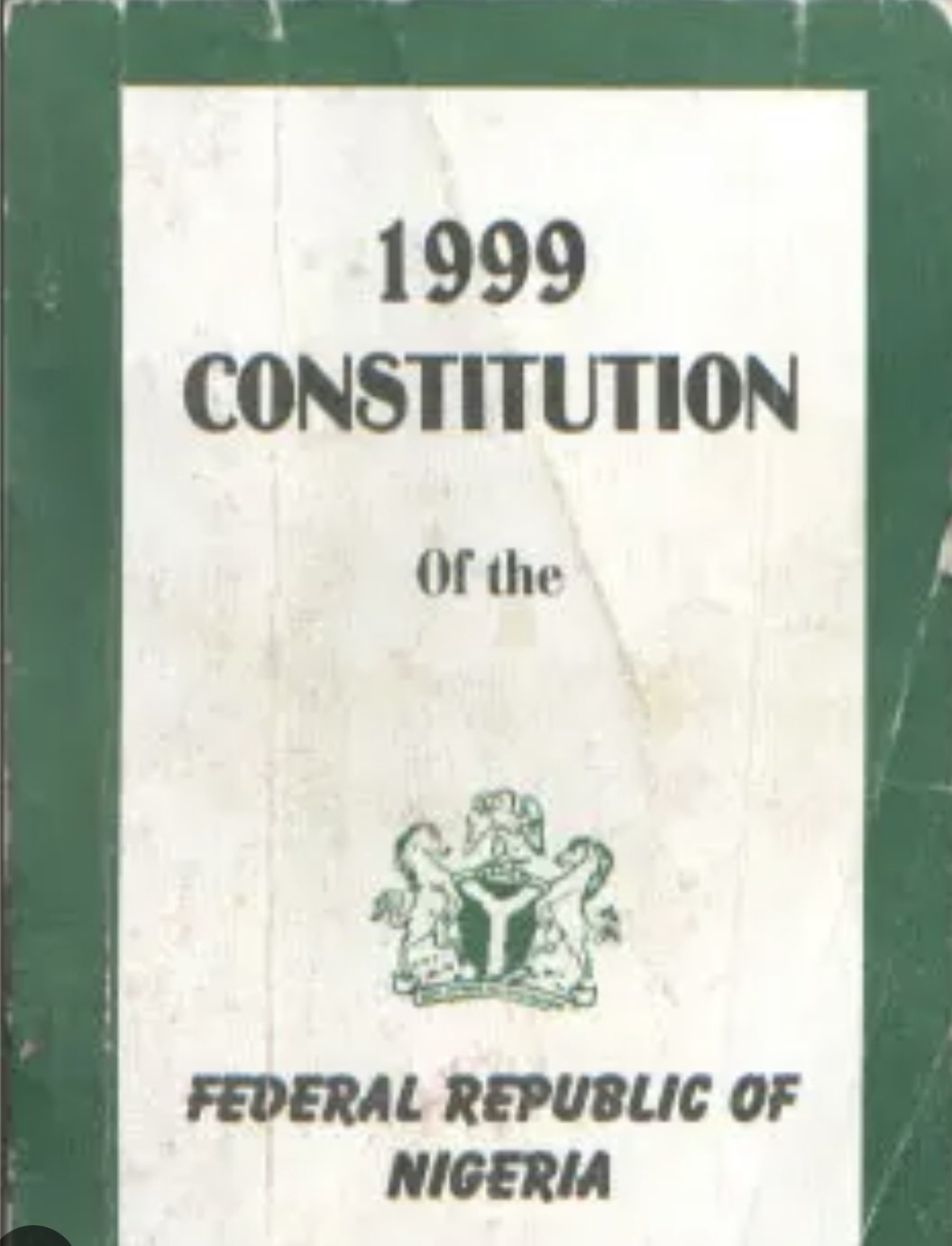Study of the Nigerian 1999 Constitution.
General Provisions Part I continues:

- (1) Nigeria is one indivisible and indissoluble sovereign state to be known by the name of the Federal Republic of Nigeria.
(2) Nigeria shall be a Federation consisting of States and a Federal Capital Territory.
- (1) There shall be 36 states in Nigeria,
that is to say, Abia, Adamawa, Akwa Ibom, Anambra, Bauchi, Bayelsa, Benue, Borno, Cross River, Delta, Ebonyi, Edo, Ekiti, Enugu, Gombe, Imo, Jigawa, Kaduna, Kano, Katsina, Kebbi, Kogi, Kwara, Lagos, Nasarawa, Niger, Ogun, Ondo, Osun, Oyo, Plateau, Rivers, Sokoto, Taraba, Yobe and Zamfara.
(2) Each state of Nigeria, named in the first column of Part I of the First Schedule to this Constitution, shall consist of the area shown opposite thereto in the second column of that Schedule.
(3) The headquarters of the Governor of each State shall be known as the Capital City of that State as shown in the third column of the said Part I of the First Schedule opposite the State named in the first column thereof.
(4) The Federal Capital Territory, Abuja, shall be as defined in Part II of the First Scheduled to this Constitution.
(5) The provisions of this Constitution in Part I of Chapter VIII hereof shall in relation to the Federal Capital Territory, Abuja, have effect in the manner set out thereunder.
(6) There shall be 768 Local Government Areas in Nigeria as shown in the second column of Part I of the First Schedule to this Constitution and six area councils as shown in Part II of that Schedule.
The legislative powers of a State of the Federation shall be vested in the House of Assembly of the State.
(7) The House of Assembly of a State shall have power to make laws for the peace, order and good government of the State or any part there of with respect to the following matters, that is
(a) any matter not included in the Exclusive Legislative List set out in Part I
of the Second Schedule to this Constitution.
(b) any matter included in the Concurrent Legislative List set out in the first column of Part II of the Second Schedule to this Constitution to the extent prescribed in the second column opposite thereto; and
(c) any other matter with respect to which it is empowered to make laws in accordance with the provisions of this Constitution.
(8) Save as otherwise provided by this Constitution, the exercise of legislative powers by the National Assembly or by a House of Assembly shall be subject to the jurisdiction of courts of law and of judicial tribunals established by law, and accordingly, the National Assembly or a House of Assembly shall not enact any law, that ousts or purports to oust the jurisdiction of a court of law or of a judicial tribunal established by law.
(9) Notwithstanding the foregoing provisions of this section, the National Assembly or a House of Assembly shall not, in relation to any criminal offense whatsoever, have power to make any law which shall have retrospective effect.
What did you all think about day 2 of our study ,getting interesting right,don’t forget to comment on what you think ,curate also and share